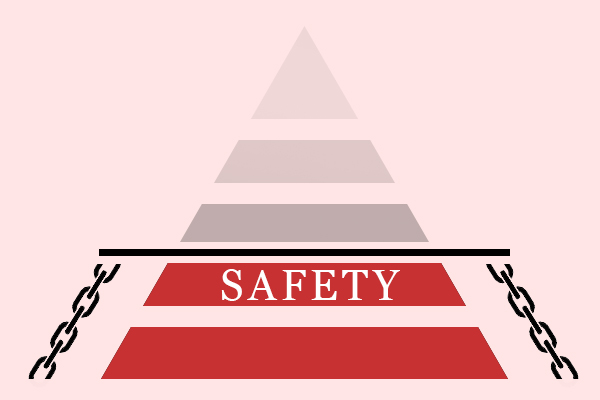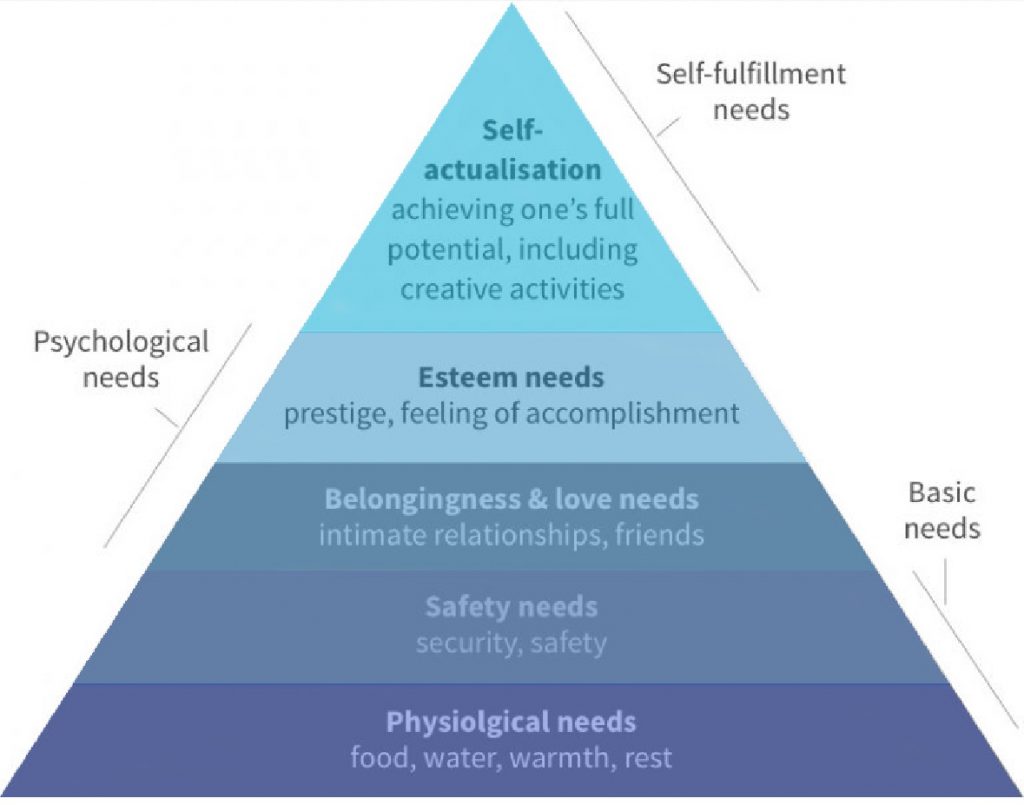
You may have heard of Maslow’s Pyramid (or Maslow’s Hierarchy as it’s also known) in many different areas of your life. From self-help guides to sales meetings, Maslow’s pyramid is often invoked because of the simplicity and elegance of its message – but do we really understand the implications of what the pyramid is teaching us?
In today’s article, we’re going to talk about the power of using this simple diagram to help you determine where you may be held back, and hopefully provide a better perspective as to how your life can be more fulfilling and complete.

The basic idea here is that our needs can be broken down into 5 basic categories, and those categories fall into one of three groups:
Physical Needs:
Physical needs consist of the first two tiers of the pyramid. We need to have access to food and water for basic survival, but we also need to feel safe and have access to shelter.
Psychological needs:
The next two tiers tell us that we seek out the friendship of others and try to live accomplished lives.
Spiritual needs:
Finally, we have ‘self-actualization’. This is a little harder to define but it comes down to this: you are the person that you are meant to be and are able to pursue all manners of creative and spiritual endeavors.
If You Are Carrying Trauma, You Are Stuck at a Fundamental Level
Safety is often misinterpreted to just mean physical safety, but emotional and psychological safety is every bit as important. People suffering from past traumatic events have conditioned themselves to be hyper-vigilant as a survival response to avoid additional distress.
People living with PTSD, anxiety, or similar debilitative conditions often find themselves stuck at the second tier of the pyramid unable to find a way to move past their need to find safety, even if they are perfectly safe in the physical sense.
If this is where you find yourself, it will be extremely difficult to maintain meaningful friendships let alone be professionally accomplished or spiritually fulfilled.
Little Things Add up Over Time
Trauma does not always have to come from experiencing a tragic event or by living under abusive conditions. It is possible (and even likely) that over time we accumulate small traumas that we hold onto. Stressful jobs, family relationships, and the intricacies of modern living can all contribute to accumulating feelings of insecurity and uncertainty – in other words, trauma.
Mistakes We Make
To minimize the pain and anxiety of trauma, we often attempt to bypass the rest of the pyramid and go straight to filling our lives with ‘spiritual’ activities. While our intentions are good, we cannot build a spiritual life on top of an incomplete and unstable foundation. If we try, we will always find ourselves repeating past mistakes and finding ourselves struggling once again with finding safety – and the cycle continues.
As difficult as it may be (and it is), the only way to move past this level is to begin the hard work of moving past your trauma with the guidance of a trusted therapist.


No responses yet